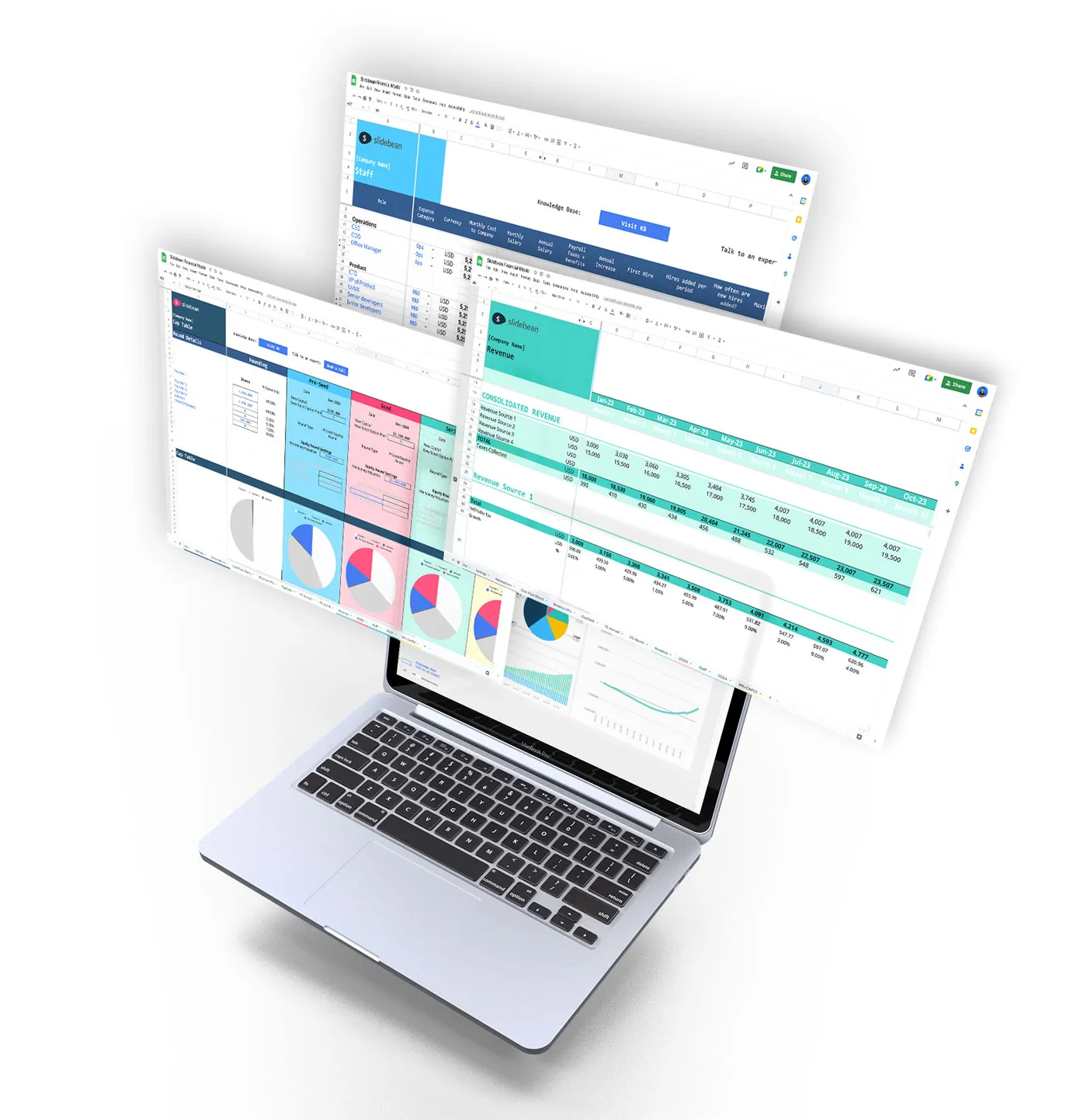
WHAT YOU NEED TO KNOW ABOUT PITCH DECK DESIGN
A pitch deck can help firms and entrepreneurs attract investors by providing a detailed but brief overview of their organization. Understanding the components of a great pitch deck will help you in getting the fund you require.
What Is A Pitch Deck?
A pitch deck is a short presentation, often made with PowerPoint, Keynote, PDF, or Slidebean. It is used by entrepreneurs or businesses to give potential investors, such as venture capitalists or angel investors, a concise but informative summary of their company or startup.
It is a visual document that offers investors vital information about your business plan, product or services, fundraising needs, and key metrics like value, target market, and financial goals. It is also known as a startup pitch deck or slide deck. The most effective pitch decks are short but informative, with basic, visually appealing slides generated with a software application.
A pitch deck is designed to pique investors' interest and excitement in a company, potentially leading to a second meeting and investment conversation. A pitch deck is an essential tool for generating business funds, but it's simply the first step.
What Makes A Good Pitch Deck Design?
Here are some of the dos and don'ts of what makes a good pitch deck
Do's
Make your pitch deck look amazing
A visually appealing pitch deck helps increase conversions. Images and infographics express concepts faster than writing. Including animation, videos, and charts in your pitch deck will help you wow clients.
Clearly label your slides.
Give each slide a catchy title. This makes it easier for your audience to ask follow-up questions.
Tell stories to convey your ideas.
Stories engage readers, whether they are clients or investors. Stories can help show a need for your product or service. To receive better pitch deck responses, explain your ideas using stories or offer instances of stories that represent your ideas.
Use bullet points on slides.
Remember that this is a short presentation. Avoid text-heavy presentations. Explain in points in detail but don't pack it all on your slides.

Don'ts:
Don't add too much text
A pitch deck with too much text on a slide is boring to read. This might lead to a loss of focus and improper information delivery to the client. Slides should have bullets, not paragraphs.
Don't use small fonts.
You won't be the only one reading the pitch deck. Your clients should be able to read the font and understand the content.
Don't make it too long.
In order to influence the client's decision, the pitch deck should be precise. The information should be on the scenario's planning and strategy. Always focus on the most critical aspects.
Avoid abbreviations and jargon.
To keep the flow of communication moving, always use common and simple language throughout your pitch. Avoid using jargons and abbreviations.
Don't make too many slides.
Pitch decks are not something that investors or clients want to spend a lot of time reading. A pitch deck with more slides is boring to read, whereas one with fewer slides is interesting.
When Should I Make A Pitch Deck?
The right time to make a pitch deck is often unclear. Confusion arises from not knowing whether it is too early, too late, or it's the right time to make one.
So, here comes the BIG question, "when is the right time to make a pitch deck?" The right time to make a pick deck is when:
- Applying to join accelerator programs or looking forward to demo day
- Attending a global startup related event
- Going for future meetings with investors or potential partners
- Going to a startup related event
- Pitching to take part in pitching competitions
- You're being connected to a potential investor
- Talking to mentors
- You're handling interviews of your potential team members
How Much Does A Pitch Deck Design Cost?
The cost of working with a pitch deck design specialist varies based on the project size. It ranges from $2000-8000, though some pitch design specialists may charge more.
What Factors Should I Consider When Hiring A Pitch Deck Designer?

Before hiring a pitch deck designer, consider the following factors
Price
Can you find the services you need? How much money can you divert to this cause? What kind of value would a fantastic pitch deck provide to you?
Reviews
Before hiring a pitch deck designer, check out the reviews. If possible, reach out to other customers for feedback.
Designs
Check out the various pitch deck designs and quality done by the designer. You wouldn't want a low-quality pitch deck.
Effectiveness
What kind of pitch deck do you want? How effective will the pitch deck be to your business? What are you using the pitch deck for?
These are the questions you need to ask yourself before hiring a designer.
Best Pitch Deck Format (Ppt/Keynote/Slidebean/Google Slides/Pdf)
This is the order in which the pitch deck should be formatted
The cover slide
Your company cover page should captivate the reader and show them your organization's potential.
Vision and value proposition
This is a quick one-sentence summary of your business and the value that you bring to your clients. Keep it simple and brief.
The problem slide
Use this slide to discuss the problem you're trying to solve. You can discuss the present market solutions, but don't spend too much time on the competition environment on this slide.
When explaining the problem, try to use a relatable story. A problem that is as real as possible can help investors better understand your business and your aims.
The market slide
Use this slide to describe your ideal customers and how many there are. How big is the market, and how your company fits in.
The solution slide
You have the opportunity to describe your product or service. Describe how customers interact with your product and how it solves the problems you addressed.
The product slide
You must clearly define your company's product or service and its uniqueness.
Marketing and sales strategy
This slide should be used to define your marketing and sales strategy. You should describe the primary strategies you plan to use to bring your product or services in front of potential clients.
The traction slide
This slide verifies the company's business model by displaying any monthly sales and support growth. The idea is to alleviate any fear of risk among potential investors. A simple bullet point list of milestones, such as the number of users, annual revenue return rate, and profit margins, can be included on this slide.
The team slide
Highlight the prominent members of the team, their previous successes, and the core skill they bring to the table.
If you don't have a full team yet, list the prominent positions you need to fill and why they are vital to your company's growth.
The competition slide
Describe your position in the market and how you are different from your competitors and alternatives. What distinguishes you from your competitors? Do you have a "secret weapon" that others don't?
The financial projections slide
Investors will want to see your financials for at least three years, including a sales projection, income statement, and cash flow forecast.
In-depth spreadsheets that are difficult to read and consume in a presentation format should be excluded. Limit yourself to graphs that show total revenue, total customers, total expenses, and total profits.
The ask slide
Finally, ask for the money. You must be able to explain why you need the money and how you intend to use it.
Best Pitch Deck Design Examples
Airbnb Pitch Deck
The Airbnb Pitch Deck is one of the most popular online references, mainly because it's so well-known. You can learn a lot from the Airbnb pitch deck. They are a wonderful example of how they presented the problem, solution, data, business strategy, and more.
Buffer Pitch Deck
One of the most popular social media scheduling apps is Buffer. You can schedule your material on Facebook, Twitter, Pinterest, and LinkedIn using it. The display of data and figures is what makes this pitch deck a popular example. It also contains their user base, annual income, and app integrations.
Facebook Pitch Deck
Mark Zuckerberg and Eduardo Saverin didn't have a clear business plan when they initially sought to market the idea to potential investors. As a result, they relied on data and statistics they already had, such as their client base, user interaction, and growth measures. It is, without a doubt, an example of a successful startup pitch deck!
MixPanel pitch deck
Mixpanel's strategy is simple. They clearly identified their target demographic, identified their needs, and gave a viable solution.
Sequoia Capital Pitch Deck
Sequoia Capital is a renowned venture capital firm in Silicon Valley. The pitch deck they recommend offers any startup an idea of what they're searching for.
Uber Pitch Deck
Uber pitch deck was really unimpressive, but the solution they offered piqued the investor's interest. They were able to address the issue in a few brief terms using common language.
Looking for Pitch Deck Designer?
Slidebean offers Pitch deck consulting services for startups looking to scale or raise capital. Our team of professionals can help you create a strong pitch deck that delivers results. Want to build your own pitch deck? Learn more about Slidebean







